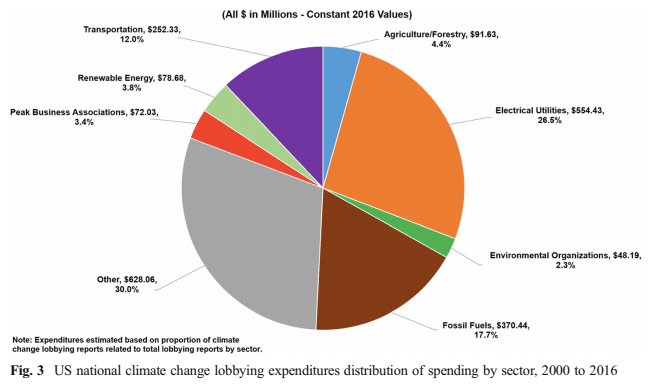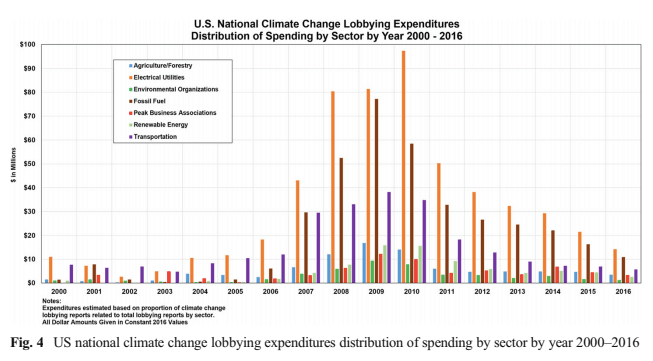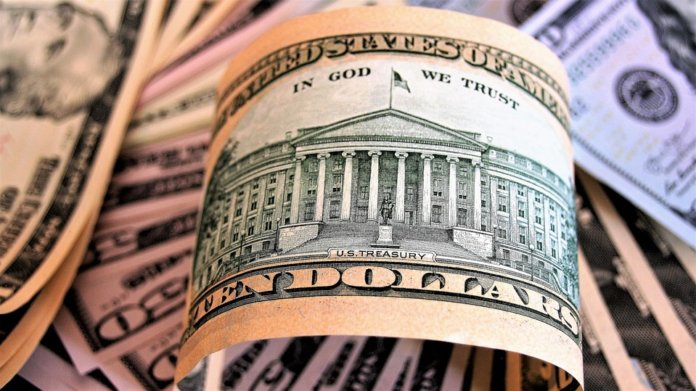A report from Philadelphia-based Drexel University claims fossil fuel, electric utility and transportation sectors have out-lobbied environmental organizations and alternative energy corporations when it comes to climate change-related legislation.
A study released last month by Robert J. Brulle, PhD, a Drexel environmental sociologist, shows that between 2000 and 2016, lobbyists spent more than $2 billion on influencing relevant climate-related legislation in U.S. Congress. The university says the study is the first peer-reviewed, comprehensive analysis ever conducted of climate lobbying data.
The study shows that the amount spent on climate change lobbying varied depending on the timing of proposed legislation and congressional hearings. Only about $50 million (about 2% of total climate lobbying expenditures) was spent between 2000 and 2006. But expenditures increased significantly in the following years, peaking in 2009 at $362 million.

So, why did lobbying efforts peak in 2009?
“The Waxman-Markey Bill, formally known as the ‘American Clean Energy and Security Act,’ barely made it past the House in June 2009, by a vote of 219-212,” says Brulle. “It’s clear that when the greatest threat presents itself – like when Congress and the executive branch are aligned and favorable to and recognize climate change as a major issue – these corporations that engage in the supply and use of fossil fuels work the hardest to upend legislative efforts by increasing their lobby spending 10-fold.”
Brulle says this has important implications for the outcome and nature of future climate legislation, which is largely determined by intra-sector and inter-industry competition. He found that the activities of environmental organizations and nonprofit organizations often constitute one-time, short-term mobilization efforts. Drexel says this is a shortcoming, given the vast expenditures and continuous presence of professional lobbyists.
“Lobbying is conducted away from the public eye. There is no open debate or refutation of viewpoints offered by professional lobbyists meeting in private with government officials,” explains Brulle. “Control over the nature and flow of information to government decision-makers can be significantly altered by the lobbying process and creates a situation of systematically distorted communication. This process may limit the communication of accurate scientific information in the decision-making process.”

Brulle analyzed data from mandatory lobbying reports made available on the website Open Secrets. In his study, he calculated that the $2 billion spent between 2000 and 2016 on climate-related issues only amounted to 3.9% of the $53.5 billion spent over the same period on lobbying on other issues in the U.S.
“Legislative outcomes fuel change, and to not address the lobbying imbalance or ignore this factor is shortsighted,” he concludes. “A more efficacious strategy will consider this lopsided representation in lobbying, as well as focused efforts, mobilization of citizens and rallying public opinion.”
The full paper is available here.




